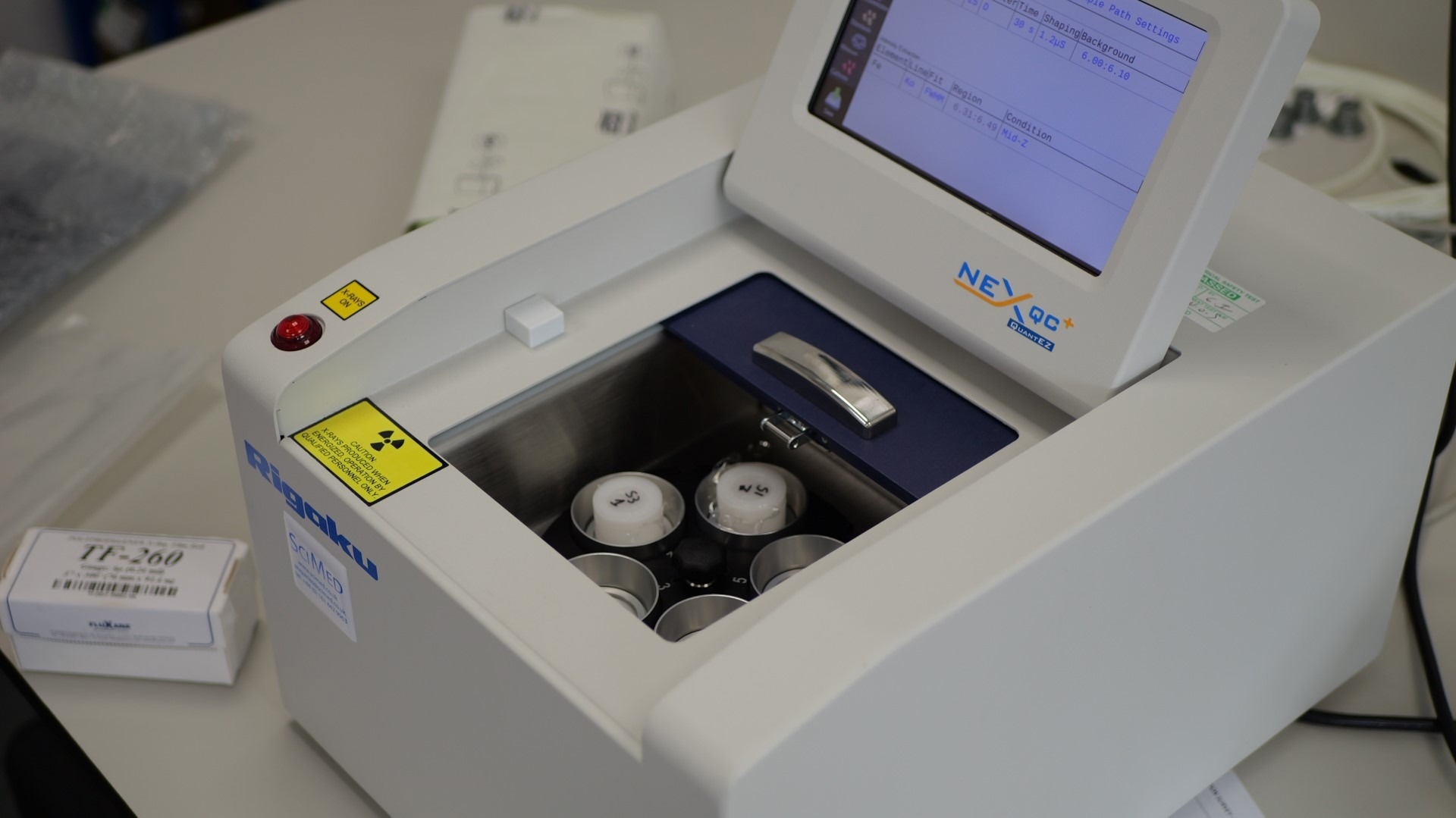SciMed, the UK’s largest distributor of scientific instrumentation, is set to host a series of three X-Ray fluorescent (XRF) spectrometry training courses at its Stockport headquarters between September 18 and 22. The comprehensive course covers everything from XRF fundamentals to sample preparation and analysis. Registration to attend is now open and spaces are filling rapidly.

Image Credit: SciMed
SciMed XRF applications specialist John Austin will be delivering the two theory courses, focusing on the theory and fundamentals of Energy-Dispersive and Wavelength-Dispersive XRF. John will be joined by FLUXANA GmbH chemist and calibration specialist Konstantin Brendgens to deliver a comprehensive Sample Preparation Masterclass. These sessions will centre on the fundamentals of using both Wavelength-Dispersive XRF and Energy-Dispersive XRF, as well as facilitating training in preparing samples for this analytical technique.
XRF is a technique that irradiates materials with high energy X-rays. Atoms in the material absorb this electromagnetic energy and release fluorescent X-rays as electrons move between energy levels. The interesting application of this technique is based on the concept that different elements, both low and high atomic numbered elements, will release X-rays with wavelengths specific to the element in the sample.
This technique already has strong applications in environmental monitoring, mining, and material sciences. It enables high-precision elemental analysis in mining products, investigating semiconductor materials, and monitoring pollutants in air quality studies. Moreover, it has gained traction in archaeological and forensic analysis, where it is being used to identify pigments used in ancient artefacts, and analyse gunshot residue and trace evidence.
SciMed’s masterclasses will enable both seasoned and novice XRF users to maximise the potential of the instrumentation while deepening their grasp of XRF spectrometry. Participants in these masterclasses will have the opportunity to advance from fundamental XRF principles to mastering instrument configurations and techniques for quantifying the composition of diverse materials.
“Mastering XRF isn’t just about operating instruments,” explained Paul Vanden Branden, director and product manager at SciMed. “It’s about empowering individuals and businesses with the knowledge and skills needed to excel in their respective fields.
“Our courses bridge the gap between theory and practice. We’re not just teaching you how to press buttons; we’re diving into the principles that make XRF work, and how you can analyse the results meaningfully. It’s about gaining a deeper understanding, which leads to better decision-making and problem-solving.”